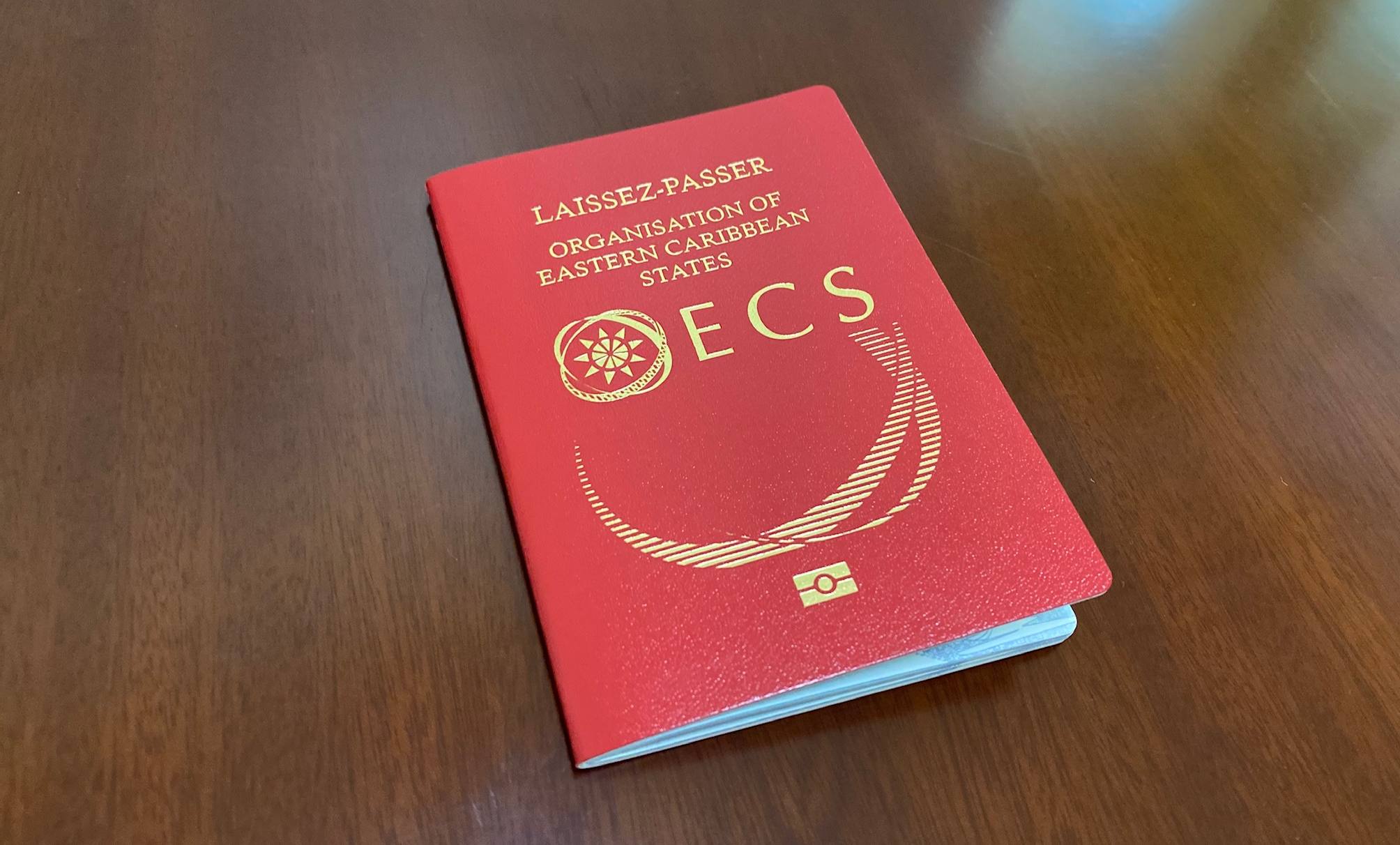New Machine-Readable OECS Electronic Laissez-Passer for Officials of OECS Institutions
OECS Media Release
The Organisation of Eastern Caribbean States (OECS) Commission has begun the issuance of its new Electronic Laissez-Passer. The new OECS Electronic Laissez-Passer replaces the previous travel document utilised by staff and representatives of OECS Institutions and Organs on official travel missions.
Unlike its predecessor, this new travel document is of international standard and is in compliance with Doc 9303 of the International Civil Aviation Organisation (ICAO), an agency of the United Nations (UN) responsible for providing guidance on the issuance of Machine Readable Travel Documents (MRTDs).
A highlight of the security features of the new Electronic Laissez-Passer includes the following:
- Iridescent ink: Ink containing semi-opaque pigments that become visible/invisible depending on the angle of view as well as the light.
- Letterpress printing: A printing technique that creates a recessed image, pressed into the substrate by, for example, a stamp or punch. Letterpress printing may be recognised by the sharp edge surrounding the image (the bead) and a possible relief on the other side of the substrate.
- Collated: A text or image that has been applied to the substrate at successive positions. Together, they form a complete image or give the appearance of movement.
- Duotone watermark: An image and/or text created during the paper-production process by varying the density of the paper. This type of watermark consists of lighter and darker sections (positive and negative).
- Contactless chip: Located in the back cover that meets ICAO specifications.
The use of the new OECS Electronic Laissez-Passer ensures that staff and representatives of OECS Institutions and Organs on official travel duties are afforded the relevant privileges and immunities as granted under the Revised Treaty of Basseterre. The new OECS Electronic Laissez-Passer will therefore ease the movement of staff and officials of OECS Institutions and Organs through regional and international borders.
OECS Director General, Dr. Didacus Jules, welcomed the introduction of the new official travel document noting that “the new machine-readable Laissez-Passer is in keeping with the standards set for international organisations and I look forward to the full roll-out in the coming months.”

